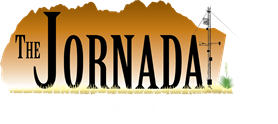| Title | Addressing air quality, agriculture, and climate change across the Southwest and Southern Plains: A roadmap for research, extension, and policy |
| Publication Type | Journal Article |
| Year of Publication | 2021 |
| Authors | Dinan M, Elias EH, Webb N, Zwicke G., Dye TS, Aney S, Brady M, Brown JR, Dobos RR, Dubois D, Edwards B, Heimel S, Luke N, Rottler CM, Steele C |
| Journal | Bulletin of the American Meteorological Society |
| Volume | 102 |
| Issue | 7 |
| Pagination | 1394–1401 |
| Date Published | 07/20/ 2021 |
| ARIS Log Number | 383783 |
| Keywords | Climate change; Agriculture; Air quality; Decision making; Policy; Societal impacts |
| Abstract | In February 2021, the USDA Southwest Climate Hub hosted the virtual event called the Southwest and Southern Plains Air Quality and Production Agriculture Science and Applications Workshop. The workshop follows the culmination of a nationwide effort assessing the current state of knowledge of air quality impacts on agricultural production, and vice versa. This benchmark effort necessitates further discussion, addressing remaining knowledge gaps and progress barriers with the expectation of a changing climate. The goal of the workshop was to identify these needs for the Southwest and southern Plains region and develop a roadmap of next steps intended for those in policy, research, and land management. Bringing focus to the Southwest and southern Plains summons local characteristics and capacities into perspective for impactful strategy development. Mid-century projections of intensifying droughts, seasonality shifts, and extreme weather events threaten to challenge the Southwest and southern Plains region. These climatic variations create new, and exacerbate current, air quality issues with implications for public well-being, agricultural production, and environmental health. Given the constancy of climate change projected for this region, greater attention must be given to the air quality–agriculture relationship with climate change inherent to these explorations. The workshop convened professionals from health, agricultural, and environmental sectors, joining from 11 states and three countries (Canada, India, and the United States). Short presentations detailed the national assessment results, current mitigation options and resources available for the agricultural sector, current USDA Natural Resources Conservation Service (NRCS) air quality priorities, evolving indicators and models for emissions, and current measurement networks. Engagement activities throughout the workshop and a discussion session welcomed a flow of learning across all involved in the workshop, outlining a regional cross section of needs and priorities to be explored further. |
| URL | files/bibliography/21-025.pdf |
| DOI | 10.1175/BAMS-D-21-0088.1 |


